
The Supreme Federal Court is the supreme court of Brazil, serving primarily as the Constitutional Court of the country. It is the highest court of law in Brazil for constitutional issues and its rulings cannot be appealed. On cases involving exclusively non-constitutional issues, regarding federal laws, the highest court is, by rule, the Superior Court of Justice.

The law of Brazil is based on statutes and, partly and more recently, a mechanism called súmulas vinculantes. It derives mainly from the civil law systems of European countries, particularly Portugal, the Napoleonic Code and the Germanic law.

Ellen Gracie Northfleet is a Brazilian judge. She is the first woman to be appointed to the Supreme Court of Brazil and the Court's first female president.

The Superior Court of Justice is the highest appellate court in Brazil for non-constitutional questions of federal law. The STJ also has original jurisdiction over some cases. Its competence is described in Article 105 of the Brazilian Constitution of 1988.

Nelson Azevedo Jobim is a Brazilian jurist, politician and businessman. He held the positions as congressman, Minister of Justice, Minister of Defense, Minister of the Supreme Federal Court (STF), where he was also president between 2004 and 2006. He is currently a member of the Board of Directors and responsible for Institutional Relations and Compliance Policies at BTG Pactual Bank.

Gilmar Ferreira Mendes is a Brazilian Justice of the Supremo Tribunal Federal, appointed by then President Fernando Henrique Cardoso in 2002. Mendes was the Chief Justice of the Court for the 2008–2010 term. Earlier, he had been the Attorney General from 2000 to 2002.
Esther Figueiredo Ferraz was the first female Minister to serve in the government of Brazil. Ferraz served as the Brazilian Minister of Education from 1982 until 1985.
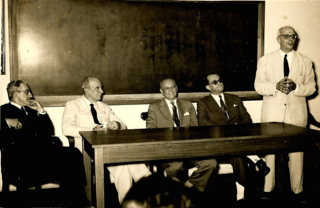
Heráclito Fontoura Sobral Pinto was a Brazilian lawyer known for his human rights activism and devout Catholicism. He strongly opposed dictator Getúlio Vargas and worked against Brazil's later military regime following the military coup of 1964.

The Judiciary of Brazil is the group of public entities designated by the Brazilian constitution to carry out the country's judicial functions.

Lei da Ficha Limpa or Complementary Law no. 135 of 2010 is a Brazilian act that amended the Conditions of Ineligibility Act. It was the fourth bill proposed by direct people's initiative as law in Brazil. It was devised by Judge Marlon Reis and received about 1.3 million signatures before being submitted to the National Congress. The act makes a candidate who has been impeached, has resigned to avoid impeachment, or been convicted by a decision of a collective body ineligible to hold public office for eight years, even if possible appeals remain.

Luís Roberto Barroso is a Brazilian law professor, jurist, Justice and President of the Supreme Federal Court of Brazil, having been nominated to the position by President Dilma Rousseff in 2013. Since 25 May 2020, Barroso has also served as President of the Superior Electoral Court.
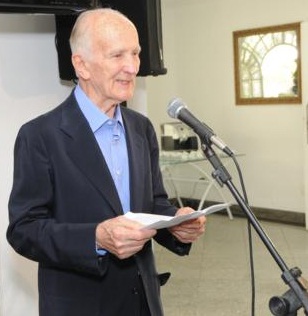
Messias Pereira Donato was a Brazilian lawyer, teacher, writer, philosopher, magistrate and jurist. Born in Bahia, graduated in law at the Federal University of Minas Gerais (UFMG), having held the judiciary work in Minas Gerais (MG) over 20 years, teaching for 22 years, as Professor of Labour Law Holder UFMG, having been Director of the Law School. In 1934, at age 13, was taken by his father, the farmer Henrique Pereira Donato, of Guanambi until Malhada- BA on the banks of the São Francisco River. Covered about 110 km mounted "by mule" a journey that took three days. From Malhada followed alone steam to Pirapora - MG and this came from railroad train to the end of twelve days of travel to get to Belo Horizonte, where he continued his studies.

Joênia Wapichana is the first indigenous lawyer in Brazil and a member of the Wapixana tribe of northern Brazil. After taking a land dispute to the Inter-American Commission on Human Rights, Wapixana became the first indigenous lawyer to argue before the Supreme Court of Brazil. She is the current president of the National Commission for the Defense of the Rights of Indigenous Peoples.

José Antonio Dias Toffoli is a Brazilian lawyer who has been a member of the Supreme Federal Court of Brazil since 2009, nominated by President Luiz Inácio Lula da Silva. Toffoli was the president of the Supreme Federal Court for the 2018–20 term.
The Milton Campos Law School (Portuguese: Faculdade de Direito Milton Campos is a private law school in the Brazilian state of Minas Gerais. Founded in 1975, it is one of the country's most prestigious law school. Several students from Milton Campos have achieved important positions in the Brazilian society. Earning a bachelor's degree takes at least five years and eventual post-graduate diplomas are completed in addition to the regular five-year program.
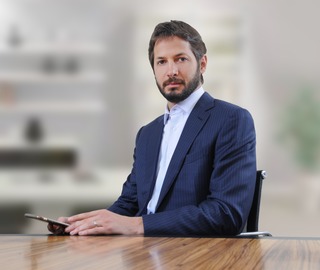
Flavio Zveiter is a Brazilian lawyer and professor, former President of the Superior Court of Sport Justice, highest body of Sport Justice in Brazil.
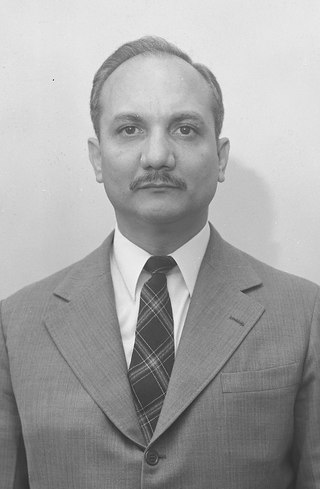
Victor Nunes Leal was a Brazilian jurist, Minister of the Supreme Federal Court and professor at the Federal University of Rio de Janeiro (UFRJ).
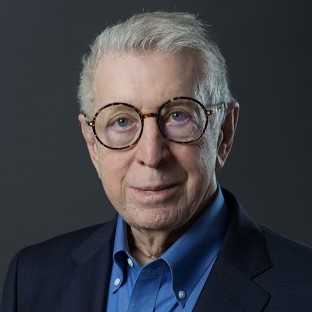
Luiz Olavo Baptista was a Brazilian jurist, lawyer, arbitrator, and International Law professor. Among other positions, he acted as President of the Appellate Body of the World Trade Organization, of which he was a member between 2001 and 2008.

Francisco Jê Acaiaba de Montezuma, first and only Viscount of Jequitinhonha, born Francisco Gomes Brandão, was a Brazilian jurist, diplomat and politician. He was a senator for the province of Bahia from 1851 to 1870, commanded two ministries during the regency of Diogo Antônio Feijó and was president of the Bank of Brazil.

Cristiano Zanin Martins is a Brazilian attorney and professor who serves as justice of the Supreme Federal Court. He gained notoriety as personal attorney of president Luiz Inácio Lula da Silva in lawsuits related to Operation Car Wash.

















